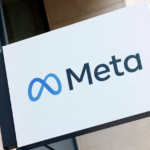OpenAI announced the launch of its Japanese subsidiary, OpenAI Japan, on April 15.
Tokyo is the third overseas location for the company, following the U.K. and Ireland, and the first in Asia.
About a year ago, in April 2023, OpenAI CEO Sam Altman visited Japan and met with Prime Minister Kishida.
At that time, he told Prime Minister Kishida that he would “establish a base in Tokyo,” and this time, that plan has come to fruition.
At a press conference held on April 15, CEO Sam Altman made the following comments via video message.
First, he greeted the audience in Japanese with a “Hello” and then said the following
Summary
Japan has a rich history of people and technology working together for the public good, and we believe that AI will make you more creative, more productive, and more conducive to global progress. Tokyo was a natural choice as a base given its leadership in technology and innovation. We are grateful to have the people of Japan as our partners as we embark on a future where AI is a catalyst for unprecedented innovation and positive social change.
And Brad Lightcap, COO was took the stage,
He said that Japan is an important market, as ChatGPT is used by over 2 million people every week. At the same time, it is an important country in terms of technology development.
What will Open AI do in the Japanese market?
First, Tadao Nagasaki, who served as president of AWS Japan for many years, will be appointed as the representative of the Japanese corporation.
His leave from AWS has been closely watched since he left the company.
Japan is one of our top markets, with 2 million weekly users of ChatGPT,” said Lightcap COO.
We want to show not only consumers, but also businesses, governments, creators, and legislators the possibilities that technology can bring.
According to Nagasaki, President of the Japanese subsidiary, we will basically put a sales and technical team in place.
Few Japanese companies have customers who understand OpenAI accurately.
For large companies, we have a lineup like ChatGPT Enterprise.
What we can read from these comments
The development of core technologies will continue in the U.S., while corporate sales and customer development in the Japanese market will continue. And perhaps build a system that can provide accompanying technical support
Furthermore, they will reach out not only to corporations but also to the Japanese government.




